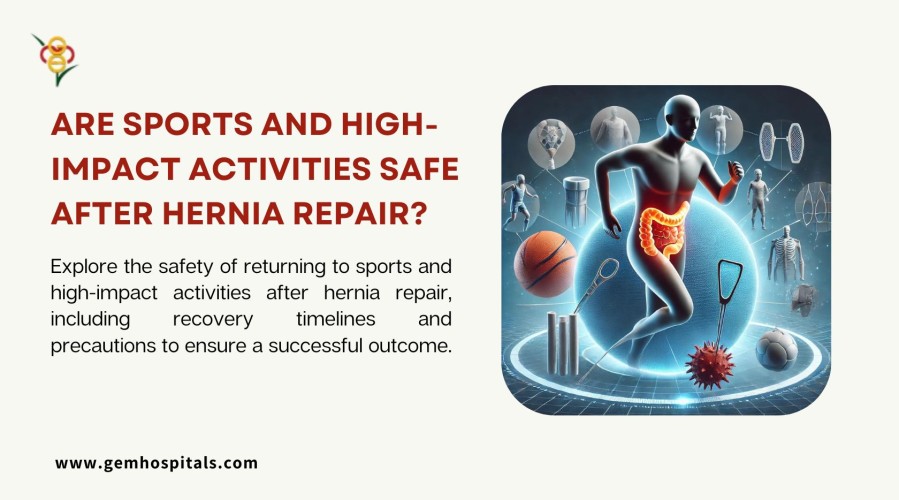Learn what gallstones are, their common symptoms, causes, and treatment options. Discover when to seek medical care and how to manage gallstone complications effectively.
Are Sports and High-Impact Activities Safe After Hernia Repair?

Hernia repair is a common procedure that helps solve discomfort and potential health risks caused by hernias. After surgery, you might wonder about your return to physical activities, especially sports and high-impact exercises. Understanding the safe transition back into these activities is crucial for your recovery and long-term health.
Easing into Activity: A Gradual Approach
Your body needs time to heal after hernia surgery. Jumping back into high-intensity activities too soon can lead to complications or even reoccurrence of the hernia. Here’s how to approach your recovery:
- Weeks 1-2: Gentle Mobility
Initially, focus on gentle walking and light movements to enhance circulation and aid healing. Avoid any strenuous activity that strains the surgery site. - Weeks 3-4: Moderate Exercise
Gradually increase your activity level. Swimming and stationary biking are excellent as they do not put excessive pressure on your abdominal area. - Month 2 and Beyond: Assess and Progress
If your doctor gives the green light, you can start reintegrating more strenuous activities. Always listen to your body. If something feels wrong, stop and consult your physician.
Specific Sports Considerations
Each sport has different demands on your body, and understanding these can help you make safer choices post-surgery:
- Golf and Tennis: These sports involve sudden twists and turns. Ensure your core strength has fully returned before you swing a racket or club.
- Running and Basketball: High-impact sports like these should be resumed only once you are comfortable with moderate activities and after medical approval.
Listen to Your Body: Signs to Slow Down
Always stay alert to your body's signals. Pain, discomfort, or swelling are indicators that you might be pushing too hard. Other signs include nausea or a visible bulge near the incision site. If you experience any of these symptoms, decrease your activity level and consult your doctor.
Tailoring Your Recovery to Your Needs
Every individual heals differently. Your recovery will depend on several factors, including your age, the type of hernia, the specifics of the surgical procedure, and your overall health. Personalizing your approach to include these factors will help ensure a safer return to your favorite sports and activities.
Scheduling Your Follow-Up at GEM Hospital
As you navigate your post-hernia repair journey, regular follow-ups at GEM Hospital can provide you with guidance tailored to your recovery needs. Don't hesitate to schedule an appointment to discuss any concerns about resuming sports or high-impact activities. Our specialists are here to support your path to full activity with safety and confidence.
Blogs & Article
Learn about bloating and gas problems, including common causes, symptoms, and effective solutions to improve digestion, reduce discomfort, and maintain gut health.
Learn how unverified Ayurveda treatments may cause liver damage, understand the risks, symptoms, and why medical guidance is essential for safe care.


